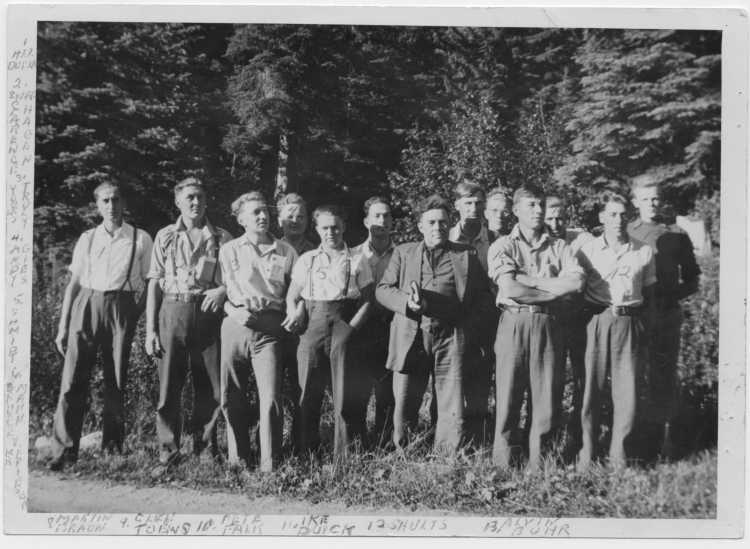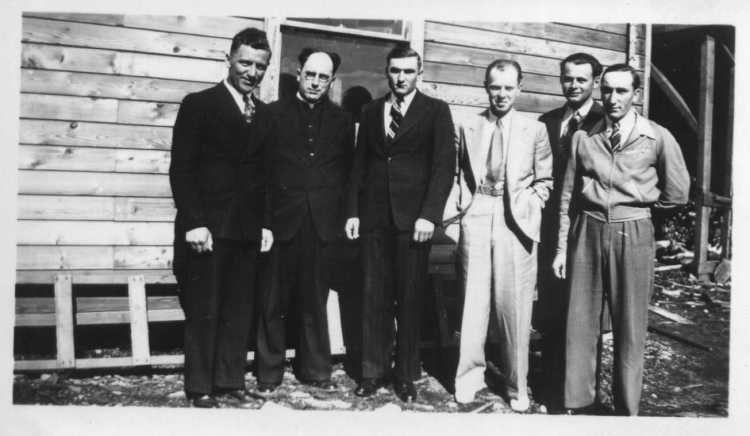Page
1 | Page 2 | Page
3 | Back to Support from Home Page
Church
ministers were heavily involved in the lives of COs. It was through
the church that most COs came to believe that war was wrong. It
was ministers who helped the COs as they prepared to face the judges.
The ministers, especially those from the Mennonite church, were
also the ones who negotiated with the Canadian government to organize
the alternative service work program. It was only natural that the
ministers would try to support the COs by visiting them where they
worked, whether in camps, mines, or hospitals. Many of them wrote
letters to the COs. Rev. J. Lavall Smith of the United
Chruch of Canada is one example. Here is a partial list of
visiting ministers.
John
A. Toews, for example, spent the spring and summer of 1943 visiting
the twenty work camps in BC, a circuit of 1300 km. [ASP,
188]
With
this type of dedication, John C. Klassen was confident that “Spiritually
we were certainly not neglected.”
“There
was always a preacher from somewhere in our midst, who conducted
devotional services, or was otherwise helpful in time of need.
While our camp boss was considered tough and hard-boiled, I believe
there was not a preacher that did not get along with him. Some
did win more favouratism than others of course, but most of them
had a sense of humour and Ed Brooks [the camp boss] liked that.”
[ASM, 23-29]
 Wilson
Hunsberger felt that the church made a good decision to have ministers
involved with the COs. Wilson
Hunsberger felt that the church made a good decision to have ministers
involved with the COs.
 |
 |
| COs with the well-liked Rev Jacob Friesen . |
Minister J.A. Toews visiting COs in BC. |
John
C. Klassen continues.
“Our
spiritual welfare during those four months had not been overlooked.
It was prearranged with the authorities that we would have a minister
at our disposal at all times. By a well organized program the
congregations took turns sending a representative minister for
a period of time. We had daily devotions and often morning and
evening services. It must have been quite a sacrifice for them
to leave home and family to stay with us and provide us with moral
support for a stipulated period of time. It also served to keep
us on the straight and narrow, so often needed by 21 year olds.
Different preachers with different personalities served us and
as I look back and reflect on the past, everyone of them was appreciated.
I believe every one of them was a friend of Ed Brooks too. A sense
of humor helped, and although some had difficulties with the English
language, that too was not an insurmountable obstacle.” [ASM,
27]
Learn
more about the ministers by reading some of their letters
and documents.
Page
1 | Page 2 | Page
3 | Back to Support from Home Page |


